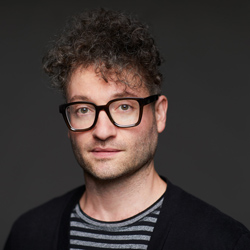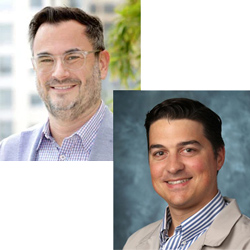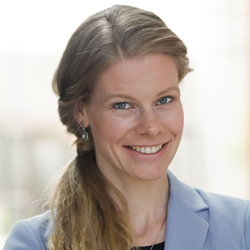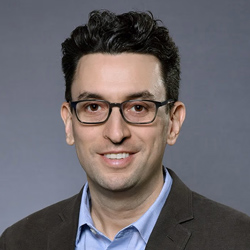Events
Past Event
WED@NICO SEMINAR: Lightning Talks with Northwestern Fellows and Scholars!
Northwestern Institute on Complex Systems (NICO)
12:00 PM
//
Lower Level, Chambers Hall
Details

NICO is hosting a lightning talk seminar each term as a part of our Wednesdays@NICO seminar series. Northwestern graduate students and postdoctoral fellows are invited to participate. To sign up for future lightning talks, please visit: https://bit.ly/2lRqSXK
Lightning Talk Speakers:
○ Sugat Dabholkar - PhD Candidate in the Learning Sciences program at the School of Education and Social Policy, Northwestern University.
Title: Emergent Systems Microworlds to teach and learn about complex emergent phenomena
Abstract: Learning and reasoning about complex systems is not simple. Both novices and experts often fall into the trap of level-slippage while reasoning about complex natural phenomena. Level-slippage is the confusion that arises when one expects emergent macro-level patterns to be similar to local micro-level patterns. Such confusion is people’s source of a deep misunderstanding of several patterns and phenomena in the world.
In my work, I seek to address this issue for high school science students by combining two powerful design approaches in Learning Sciences, namely, agent-based modeling of emergent systems and constructionism. We call this design approach Emergent Systems Microworlds (ESM). This approach is based on Wilensky and Papert’s restructuration theory (2010), which argues for the importance of representational infrastructure for changing fundamental aspects of knowledge encodings in a disciplinary domain. In this talk, I will discuss how agent-based restructurations in an ESM allow learners to develop fundamentally deeper insights into complex phenomena.
In an ESM-based curriculum, students explore and learn about emergent phenomena, using agent-based computational models that are designed in NetLogo (Wilensky, 1999) in the form of a microworld. In such models, an agent is a computational object with particular properties and actions. An ‘emergent’ phenomenon is modeled in terms of agents and their interactions. Microworlds are encapsulated open-ended computational exploratory environments in which a set of concepts can be explored, through interactions that lead to knowledge construction. In this talk, I will present some examples of ESM-based curricula that I designed for high school students to learn about genetics and evolution, two fundamental ideas in biology. I will discuss how the agent-based representational architecture in the ESMs allowed the students to engage in reasoning about complex systems principles in the context of the phenomena they were studying.
Bio: Sugat Dabholkar is a doctoral candidate in the Learning Sciences program at the School of Education and Social Policy, Northwestern University. His work involves designing technology-enhanced learning environments for learning scientific thinking, computational thinking, and complex systems thinking. Over the past four years, Sugat has developed several computational agent-based models, many of which have been incorporated into curricular units for high school students. He has conducted Professional Development programs for teachers focusing on designing Computational Thinking integrated STEM curricular units. These curricular units have been used in school settings in the US as well as in India.
○ Xuan Ma - Postdoctoral Fellow at the Feinberg School of Medicine, Northwestern University
Title: Probing motor control during naturalistic movements for extending BCI use
Abstract: Most existing sensorimotor and brain computer interface (BCI) studies have investigated the mapping from motor cortex (M1) to muscles by training monkeys to perform a few instructed movements in highly restricted conditions. Motivated by the demand of extending those in-lab studies to a wider realm, we propose to explore motor control during more natural movements of unrestrained monkeys. We simultaneously recorded M1 neural activity and electromyograph (EMG) wirelessly while the monkey was in a plastic telemetry cage in which it could perform various free-form movements. We then investigated the features of these signals and the consistency of the relationship between them. In this talk, I will describe progress we have made and challenges we are facing to extend BCI use in more naturalistic contexts, and will also introduce our efforts with deep learning methods to address those challenges.
Bio: Xuan Ma is currently a postdoctoral fellow in Feinberg School of Medicine, Northwestern University. He received the Ph.D. degree in control science and engineering from Huazhong University of Science and Technology, Wuhan, China, in 2017. His research interests include cortically-controlled functional electric stimulation, neural motor control system modeling, and biomedical signal processing.
○ Suman Kalyan Maity - Postdoctoral Fellow at the Kellogg School of Management, CSSI and NICO
Title: Winners, Losers, and Future Achievement
Abstract: One of the most robust findings on human performance is that past achievement predicts future achievements. Indeed, prior achievements may reflect underlying, differentiating characteristics rendering past winners more predictably outperforming their non-winning counterparts in future competitions. Further, the Matthew effect posits that past victories bring reputation and recognition that can translate into tangible assets, which increase the chance for future victories. Hence even if the deck was not stacked against some in favor of others, positive feedback operating on arbitrary initial advantage can increasingly set apart winners from losers. These mechanisms lead to one fundamental principle with crucial implications: Between past winners and losers, it is the former that are more likely to win in the future. Indeed, partly due to the robustness of this principle, the idea of selecting on winners has become one of the most commonly used heuristics in identifying and nurturing talents across a remarkably wide range of domains. In this talk, we systematically test against the principle of selecting between winners and losers across various settings. We observe that whenever there existed a reward based milestone (being on the podium, entering the main draw of a Tennis tournament etc.), the athletes who had just missed it ended up outperforming the athletes who narrowly achieved the milestone in future endeavors.
Bio: Suman Kalyan Maity is a Postdoctoral Fellow at the Kellogg School of Management, The Center for Science of Science & Innovation (CSSI), and NICO.
○ Rebeka O. Szabo - Pre-Doctoral Fellow at the Kellogg School of Management, Northwestern University
Title: The Micro-Dynamic Nature of Team Interaction
Abstract: Teams have become a popular organization form since well-functioning task-focused groups are basic pillars of successful organizations. While there is much interest in contemporary social science in understanding team processes that lead to efficiency, most of these researches rely heavily on self-reported data yielding static and potentially biased information and tends to overlook actual interaction processes. We propose a novel approach that allows portraying a nuanced, complex picture of problem-solving group behavior by measuring performance dynamics as it evolves in real-time, in a controlled environment. The research aims to explore how collaboration networks of small project teams evolve across time and team members, and how it relates to successful task performance. We investigate interaction patterns in escape rooms, where all teams are video recorded during the task-solving process in the same experimental environment. We expected that homogeneous distribution of interaction ties across time and team members fosters successful problem-solving. Concerning the impact of the initial social roles on the dynamics of the interaction pattern, we hypothesized that flexible, less hierarchical team structures favor for problem-solving. This research aims to advance the new science of teams' by focusing on the network micro-mechanisms that allows us to treat teams as dynamic, adaptive, task-performing systems.
Bio: Rebeka O. Szabo is a visiting Pre-Doctoral Fellow at the Kellogg School of Management. She is a PhD candidate at the Central European University's Department of Network and Data Science.
About the Speaker Series:
Wednesdays@NICO is a vibrant weekly seminar series focusing broadly on the topics of complex systems and data science. It brings together attendees ranging from graduate students to senior faculty who span all of the schools across Northwestern, from applied math to sociology to biology and every discipline in-between.
Live Stream:
Time
Wednesday, March 4, 2020 at 12:00 PM - 1:00 PM
Location
Lower Level, Chambers Hall Map
Contact
Calendar
Northwestern Institute on Complex Systems (NICO)
WED@NICO SEMINAR: Alex Imas, University of Chicago "Agentic Interactions"
Northwestern Institute on Complex Systems (NICO)
12:00 PM
//
Lower Level, Chambers Hall
Details

Speaker:
Alex Imas, Roger L. and Rachel M. Goetz Professor of Behavioral Science, Economics, and Applied AI, University of Chicago, Booth School of Business
Title:
Agentic Interactions
Abstract:
Do human differences persist and scale when decisions are delegated to AI agents? In this talk we will explore an experimental marketplace in which individuals author instructions for buyer-and seller-side agents that negotiate on their behalf. We compare these AI agentic interactions to standard human-to-human negotiations in the same setting. First, contrary to predictions of more homogenous outcomes, agentic interactions lead to, if anything, greater dispersion in outcomes compared to human-mediated interactions. Second, crossing agents across counterparties reveals systematic dispersion in outcomes that tracks the identity and characteristics of the human creators; who designs the agent matters as much as, and often more than, shared information or code. Canonical behavioral frictions reappear in agentic form: personality traits shape agent behavior and selection on principal characteristics yields sorting. Despite AI agents not having access to the human principal's characteristics, demographics such as gender and personality variables have substantial explanatory power for outcomes, in ways that are sometimes reversed from human-to-human interactions. Moreover, we uncover significant variation in "machine fluency"-the ability to instruct an AI agent to effectively align with one's objective function-that is predicted by principals' individual types, suggesting a new source of heterogeneity and inequality in economic outcomes. These results indicate that the agentic economy inherits, transforms, and may even amplify, human heterogeneity. Finally, we highlight a new type of information asymmetry in principal-agent relationships and the potential for specification hazard, and discuss broader implications for welfare, inequality, and market power in economies increasingly transacted through machines shaped by human intent.
Speaker Bio:
Alex Imas studies behavioral economics with a focus on how people understand and mentally represent the choices they are facing. His research explores topics related to how people learn and make choices in settings with risk and uncertainty. He also studies the economics of artificial intelligence and discrimination. Alex’s work utilizes a variety of methods, including controlled laboratory experiments, field experiments, analysis of observational data and theoretical modeling.
Alex is the recipient of the 2023 Alfred P. Sloan Research Fellowship, the Review of Financial Studies Rising Scholar Award, the New Investigator Award from the Behavioral Science and Policy Association, the Hillel Einhorn New Investigator Award from the Society of Judgment and Decision Making, the Distinguished CESifo Affiliate Award, and the NSF Graduate Research Fellowship. He is the co-author, with Richard Thaler, of The Winner’s Curse: Behavioral Economics Anomalies, Then and Now. He is an Associate Editor at the Journal of the European Economic Association and on the editorial board of Psychological Science.
Location:
In person: Chambers Hall, 600 Foster Street, Lower Level
Remote option: https://northwestern.zoom.us/j/91389366431
PW: NICO26
About the Speaker Series:
Wednesdays@NICO is a vibrant weekly seminar series focusing broadly on the topics of complex systems, data science and network science. It brings together attendees ranging from graduate students to senior faculty who span all of the schools across Northwestern, from applied math to sociology to biology and every discipline in-between. Please visit: https://bit.ly/WedatNICO for information on future speakers.
Time
Wednesday, February 18, 2026 at 12:00 PM - 1:00 PM
Location
Lower Level, Chambers Hall Map
Contact
Calendar
Northwestern Institute on Complex Systems (NICO)
WED@NICO SEMINAR: Todd Florin and Nelson Sanchez-Pinto, Lurie Children's Hospital of Chicago "Pediatric Acute & Critical Care Research & Innovation"
Northwestern Institute on Complex Systems (NICO)
12:00 PM
//
Lower Level, Chambers Hall
Details

Speakers:
Todd Florin, MD, MSCE, Associate Division Head for Academic Affairs & Research, Division of Emergency Medicine, Ann & Robert H. Lurie Children’s Hospital of Chicago; Professor of Pediatrics (Emergency Medicine), Northwestern University Feinberg School of Medicine
L. Nelson Sanchez-Pinto, MD, MBI, Attending Physician, Critical Care, Ann & Robert Lurie Children’s Hospital of Chicago; Associate Professor of Pediatrics (Critical Care) and Preventive Medicine (Health and Biomedical Informatics), Northwestern University Feinberg School of Medicine
Title:
Pediatric Acute & Critical Care Research & Innovation
Abstract:
TBA
Speaker Bios:
Dr. Todd Florin is a founding co-director of the Center for Pediatric Acute and Critical Care Research and Innovation (PACCRI). He is a pediatric emergency medicine physician-scientist with interests in pediatric respiratory infections and expertise in clinical and molecular epidemiology, predictive analytics, and large-scale, multicenter clinical trials in the acute care setting. He is committed to generating and implementing the best evidence to allow for precision care tailored to each patient.
Dr. Nelson Sanchez-Pinto is a founding co-director of the Center for Pediatric Acute and Critical Care Research and Innovation (PACCRI). He is a pediatric critical care medicine physician-scientist with interests in sepsis and expertise in data science and clinical informatics. His goal is to develop, test, and operationalize AI-enabled predictive and prognostic enrichment strategies that can help clinicians provide more personalized and targeted care to critically ill children.
Location:
In person: Chambers Hall, 600 Foster Street, Lower Level
Remote option: https://northwestern.zoom.us/j/92586384543
PW: NICO26
About the Speaker Series:
Wednesdays@NICO is a vibrant weekly seminar series focusing broadly on the topics of complex systems, data science and network science. It brings together attendees ranging from graduate students to senior faculty who span all of the schools across Northwestern, from applied math to sociology to biology and every discipline in-between. Please visit: https://bit.ly/WedatNICO for information on future speakers.
Time
Wednesday, February 25, 2026 at 12:00 PM - 1:00 PM
Location
Lower Level, Chambers Hall Map
Contact
Calendar
Northwestern Institute on Complex Systems (NICO)
WED@NICO SEMINAR: Ágnes Horvát, Northwestern School of Communication
Northwestern Institute on Complex Systems (NICO)
12:00 PM
//
Lower Level, Chambers Hall
Details

Speaker:
Ágnes Horvát, Associate Professor, Department of Communication Studies, Northwestern School of Communication
Title:
TBA
Abstract:
TBA
Speaker Bio:
Ágnes Horvát is an Associate Professor in the Department of Communication Studies, (by courtesy) the Computer Science Department of the McCormick School of Engineering, and (also by courtesy) the Department of Management and Organizations of the Kellogg School of Management.
Her research seeks to measure, understand, and forecast the collective behaviour of networked crowds in large-scale socio-technical systems. On the one hand, her current projects investigate the impact of network embeddedness and diversity on scholarly communication. On the other hand, she works on identifying expressions of collective intelligence and opportunities for innovation in crowdsourcing communities. Her research group also develops empirical and theoretical methods to support creativity and predict success in culture industries. This work lies at the intersection of computational social science and social computing. It uses an interdisciplinary data-driven approach that builds on techniques from network science, machine learning, and statistics.
Location:
In person: Chambers Hall, 600 Foster Street, Lower Level
Remote option: https://northwestern.zoom.us/j/96701776160
PW: NICO26
About the Speaker Series:
Wednesdays@NICO is a vibrant weekly seminar series focusing broadly on the topics of complex systems, data science and network science. It brings together attendees ranging from graduate students to senior faculty who span all of the schools across Northwestern, from applied math to sociology to biology and every discipline in-between. Please visit: https://bit.ly/WedatNICO for information on future speakers.
Time
Wednesday, March 4, 2026 at 12:00 PM - 1:00 PM
Location
Lower Level, Chambers Hall Map
Contact
Calendar
Northwestern Institute on Complex Systems (NICO)
WED@NICO SEMINAR: Steven Franconeri, Northwestern University "Point Taken: A gamified Intervention that Creates Enlightened Disagreements"
Northwestern Institute on Complex Systems (NICO)
12:00 PM
//
Lower Level, Chambers Hall
Details

Speaker:
Steven Franconeri, Professor of Psychology, Weinberg College of Arts & Sciences; Professor of Management and Organizations, Kellogg School of Management, Northwestern University
Title:
Point Taken: A gamified Intervention that Creates Enlightened Disagreements
Abstract:
Should we drop standardized testing for college or Ph.D. admissions? Allow athletes to join teams based on gender identity? When organizational and public policies bind behavior, human coexistence requires a way to determine that collective policy. Because individuals and like-minded groups have incomplete information, constrained strategies, and biased perspectives, thoughtful debate on those policies is critical. Unfortunately, those debates too often degrade into chaotic fights.
Point Taken provides a scalable solution by translating best practices in conflict resolution and critical thinking into a structured dialogue that can be learned and played in 30 minutes. In this interactive session, you'll play a short game to feel its effects.
Players replace persuasion with a common goal of discovering why they disagree. Dialogue then unfolds thoughtfully and calmly, through chains of short written reasons and responses. We've tested the game extensively in schools and organizations, and conducted a formal pilot study. All show powerful improvements in the tone and quality of debate, across longstanding and strongly-held disagreements. I’ll give background on best practices for enlightened disagreement, show how they translate to the game, ask you to play a game, and then ask for your advice on next steps.
Speaker Bio:
Steven Franconeri is leading scientist, teacher, and speaker on visual thinking, visual communication, and the psychology of data visualization. He is a Professor of Psychology in the Weinberg College of Arts & Sciences at Northwestern, Director of the Northwestern Cognitive Science Program, as well as a Kellogg Professor of Management and Organizations by Courtesy. He is the director of the Visual Thinking Laboratory, where a team of researchers explore how leveraging the visual system - the largest single system in your brain - can help people think, remember, and communicate more efficiently.
His undergraduate training was in computer science and cognitive science at Rutgers University, followed by a Ph.D. in Experimental Psychology from Harvard University, and postdoctoral research at the University of British Columbia. His work on both Cognitive Science and Data Visualization has been funded by the National Science Foundation, as well as the Department of Education, and the Department of Defense. He has received a prestigious National Science Foundation CAREER award, given to researchers who combine excellent research with outstanding teaching, and he has received a Psychonomic Society Early Career award for his research on visual thinking.
Location:
In person: Chambers Hall, 600 Foster Street, Lower Level
Remote option: https://northwestern.zoom.us/j/97198523514
PW: NICO26
About the Speaker Series:
Wednesdays@NICO is a vibrant weekly seminar series focusing broadly on the topics of complex systems, data science and network science. It brings together attendees ranging from graduate students to senior faculty who span all of the schools across Northwestern, from applied math to sociology to biology and every discipline in-between. Please visit: https://bit.ly/WedatNICO for information on future speakers.
Time
Wednesday, March 11, 2026 at 12:00 PM - 1:00 PM
Location
Lower Level, Chambers Hall Map
Contact
Calendar
Northwestern Institute on Complex Systems (NICO)

